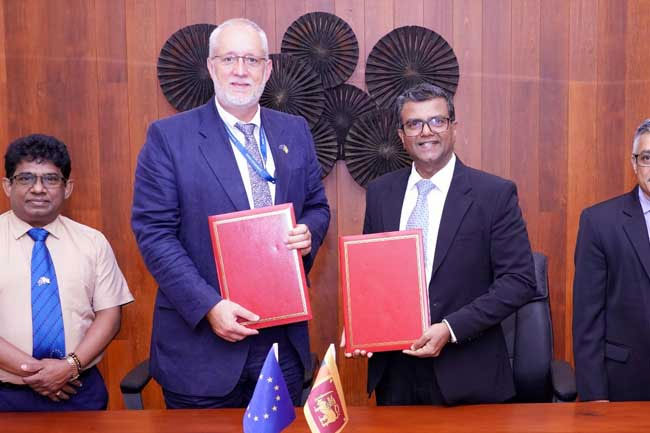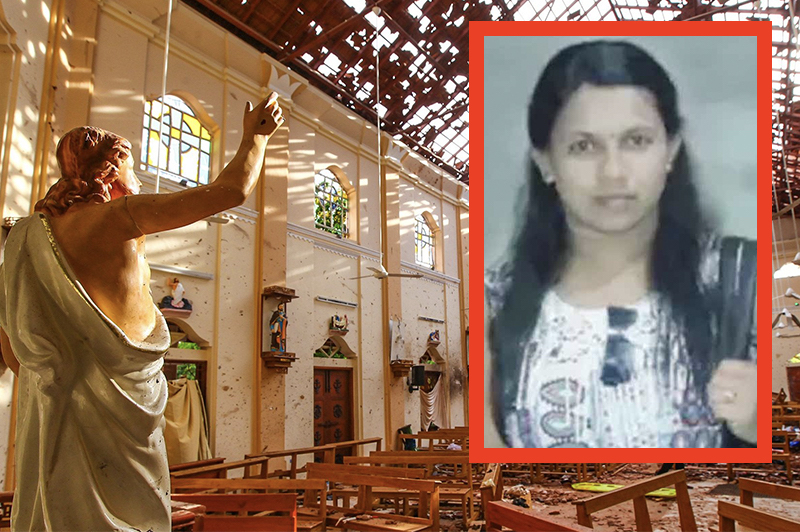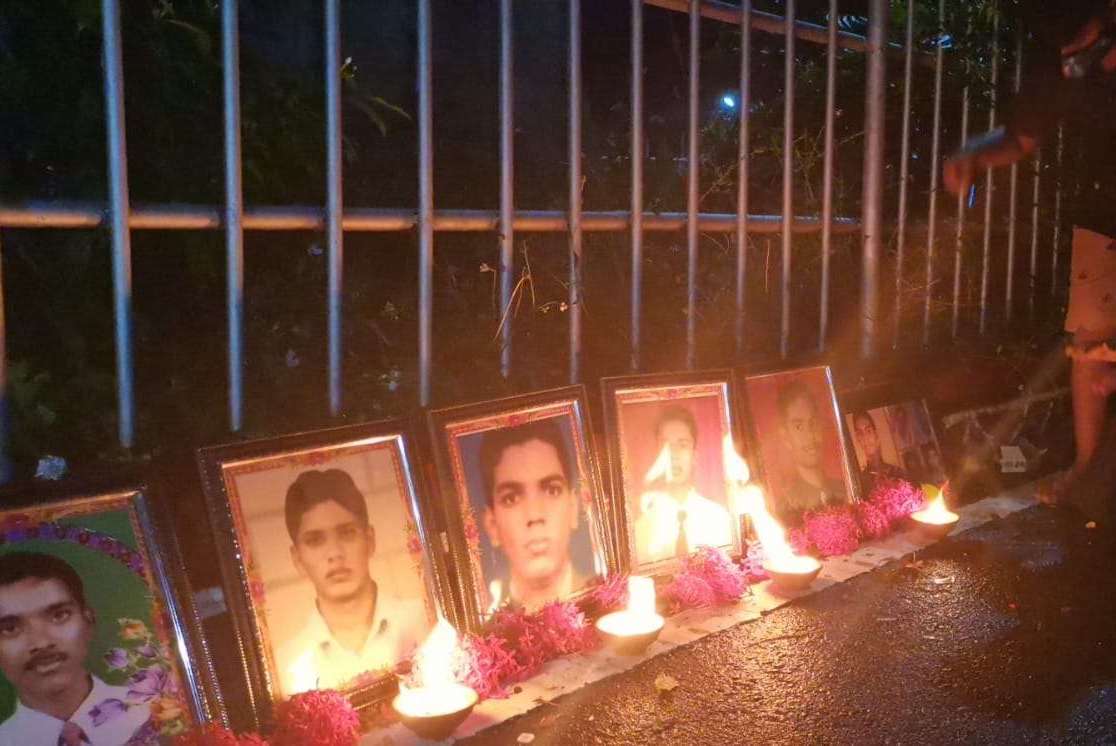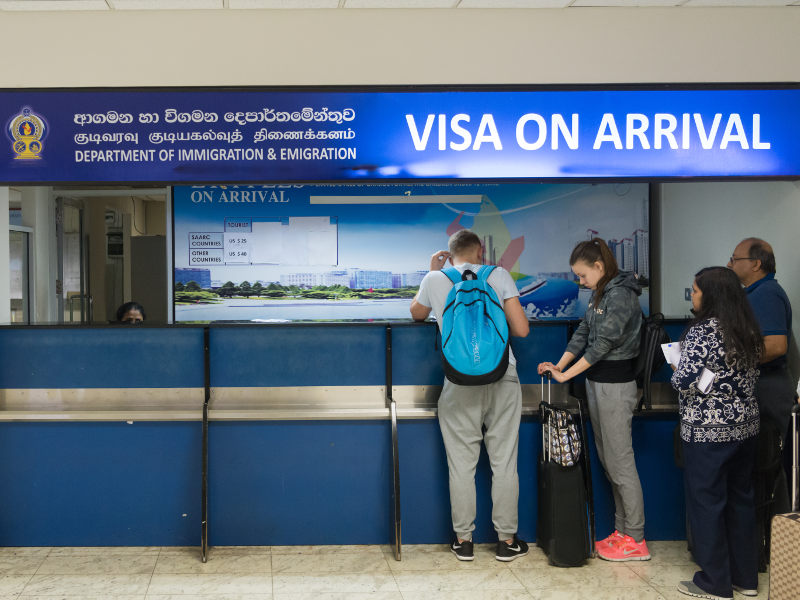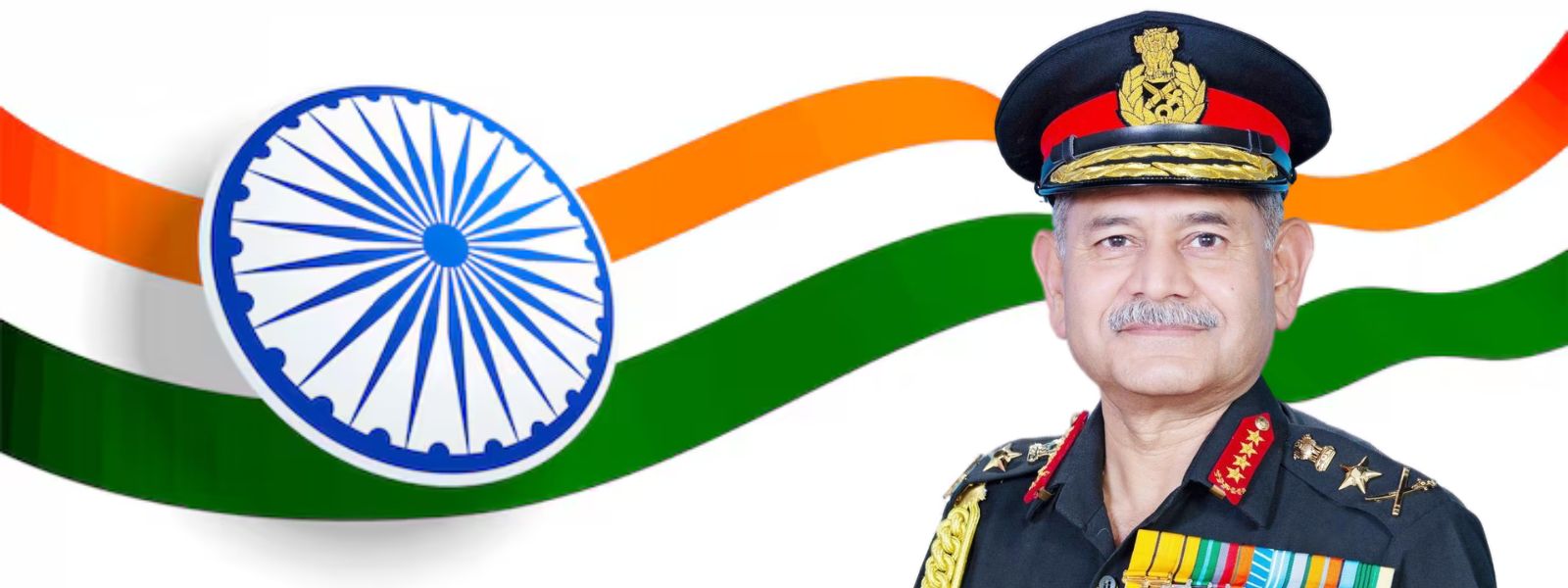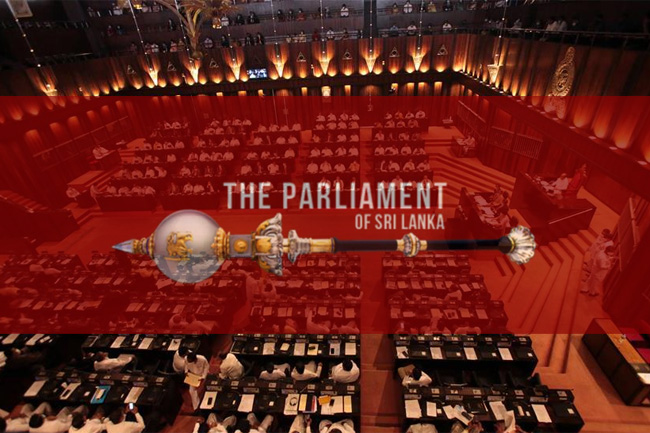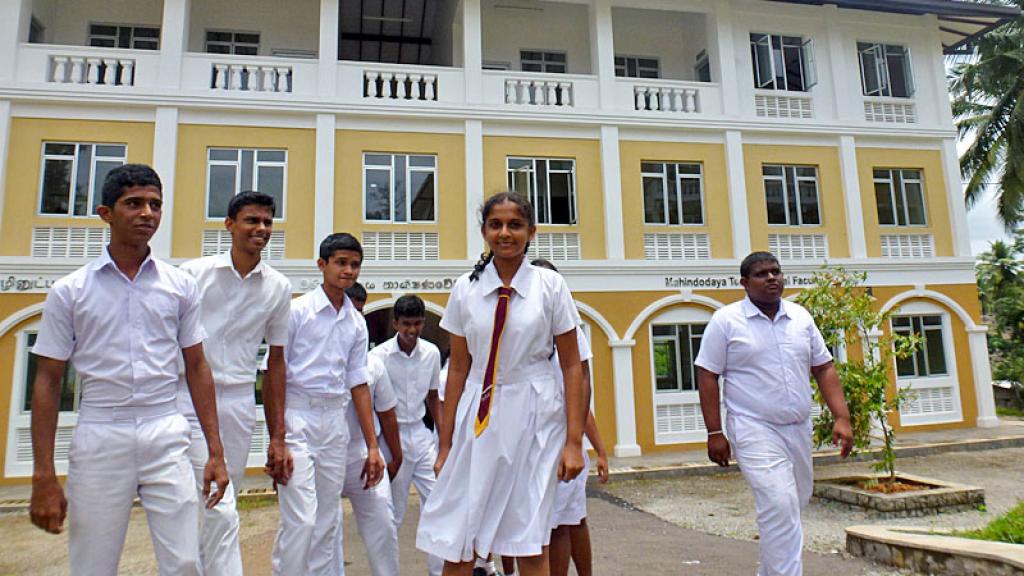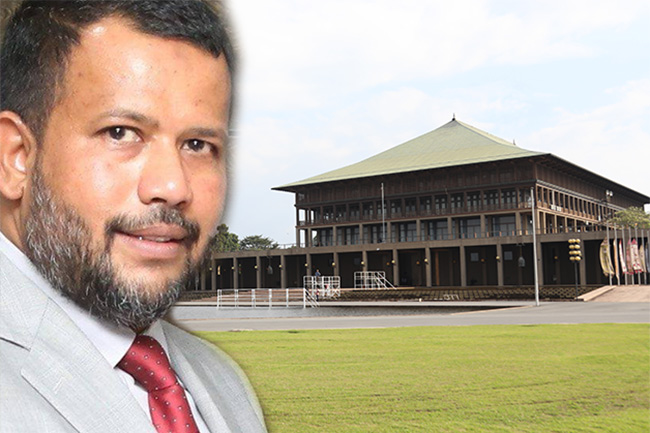Families and relatives of students shot and killed near Trincomalee two decades ago gathered Friday (02) to mark the 20th anniversary of the killings.
The memorial honoured students Manoharan Rajeehar, Yogaraja Hemachandran, Shanmugaraja Gajendran, Logidharaja Rohan, and Thangathurei Sivananda, who were fatally shot on January 2, 2006, near Fort Frederick.
Two other students, Yoganadan Punungalal and Pararajasingham Gokulraj, survived the attack.
The ceremony, held at the Gandhi Roundabout in Trincomalee, saw families lay flowers and light candles in front of photographs of the deceased to pay tribute to their memory.
At the time of the killings, the government under President Mahinda Rajapaksa denied any involvement by security forces.
However, photographs later obtained by Subramaniyam Sugirdharajan, a journalist for Sudar Oli, confirmed the students were shot.
Subramaniam himself was shot dead two weeks later in a high-security zone near the Eastern Governor’s office.
The families had filed legal action against the security personnel allegedly involved and several soldiers were taken into custody but were later released on bail.
The initial government investigation was widely criticized amid allegations that political pressures and ethnic tensions influenced the outcome.
In response, the then-opposition Janatha Vimukthi Peramuna (JVP) which had supported Mahinda Rajapaksa, staged protests along with local Sinhala nationalist groups, claiming that conducting investigations into the killings would undermine the morale of security forces.
At the time of the 2006 killings, then-Highways Minister Basil Rajapaksa told US Ambassador Robert Blake that government forces were aware of the involvement of Special Task Force personnel but could not prosecute due to insufficient evidence.
Dr. Kasipillai Manoharan, father of the slain student Manoharan Rajeehar, brought the Trincomalee student killings to the United Nations Human Rights Council, but even after 20 years, justice has yet to be served.
He passed away on September 21, 2025, after spending nearly two decades fighting for justice for his son and four other students.




